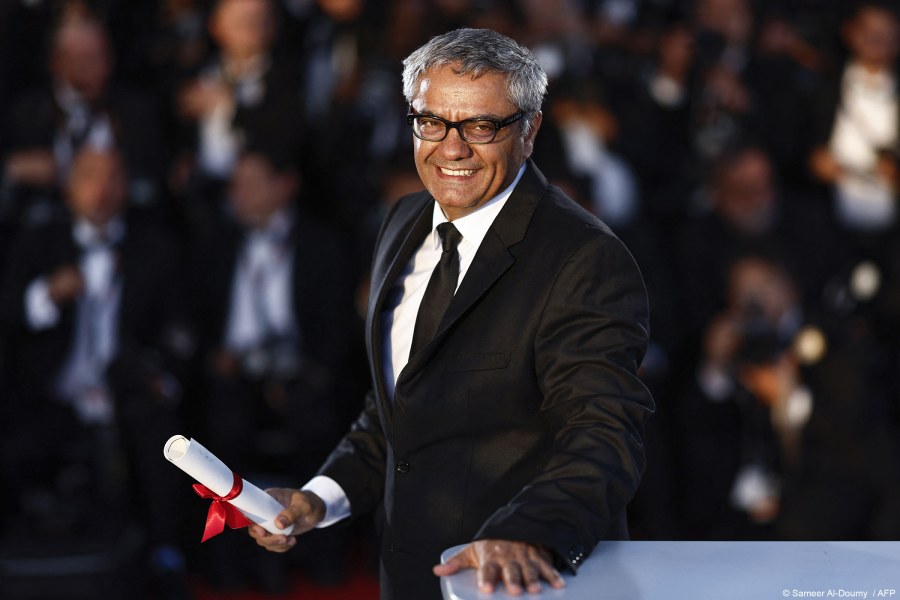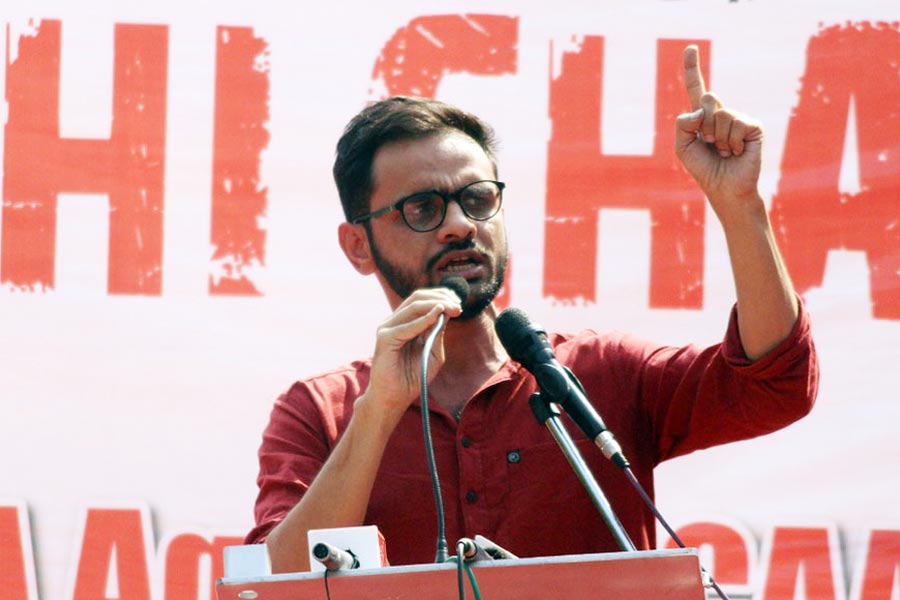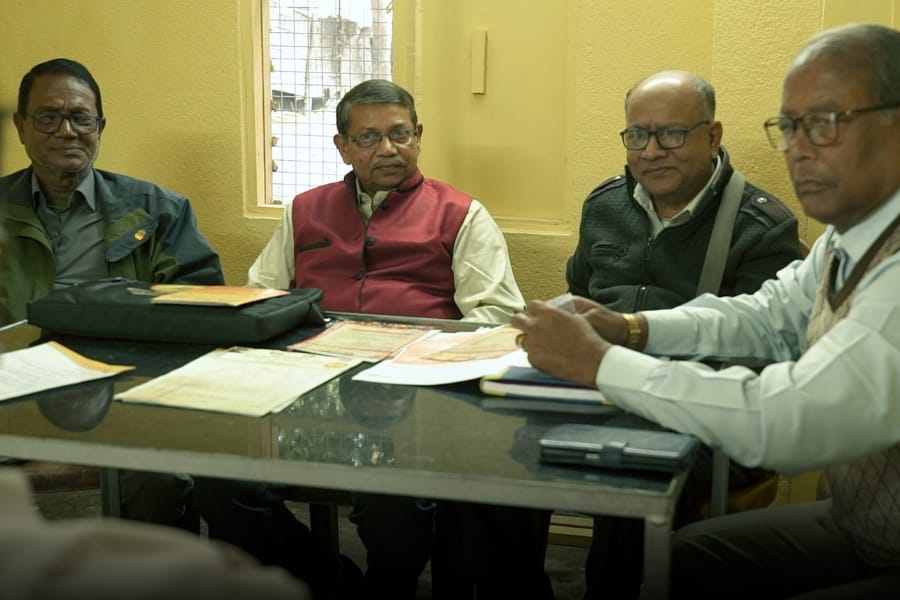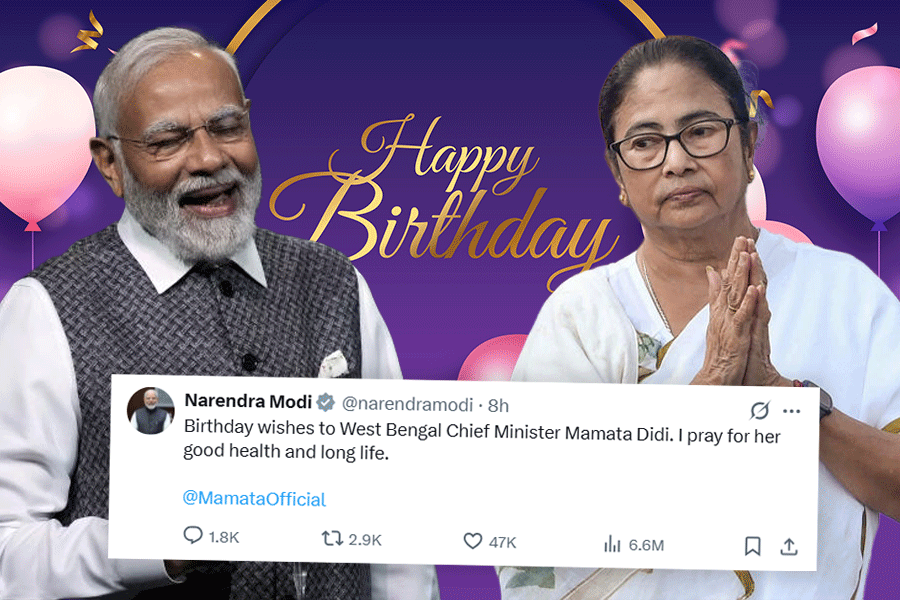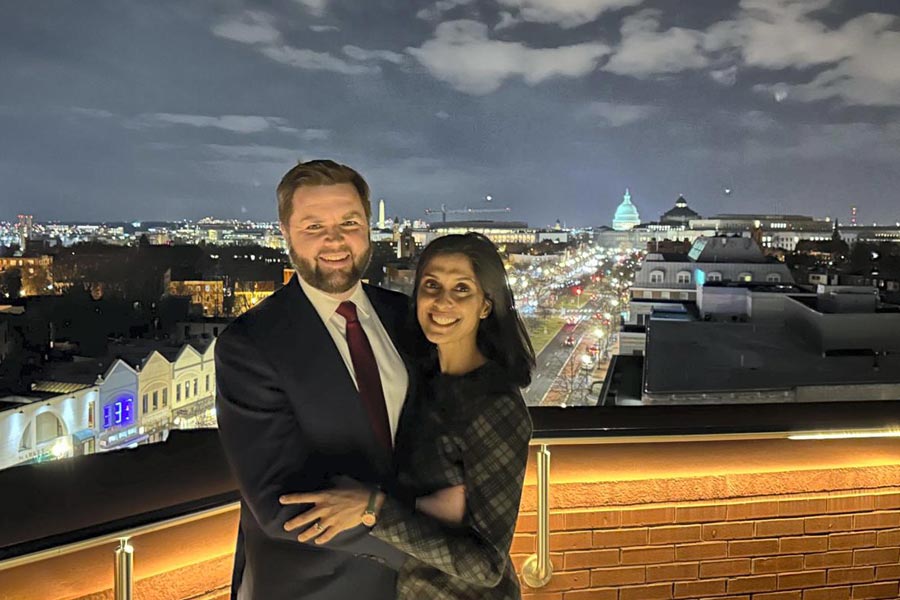While shooting his new film “The Seed of the Sacred Fig,” director Mohammad Rasoulof learned that he was facing eight years in prison for making movies that criticize Iran’s hard-line government.
So Rasoulof fled Iran, made his way to Germany, and then arrived in France this past week for the Cannes Film Festival. After “The Seed of the Sacred Fig” premiered in competition at the festival to strong reviews Friday night, Rasoulof promised to continue making films that shine a light on the situation in his country.
“The Islamic Republic has taken the Iranian people hostage,” he said at a news conference Saturday. “It’s very important, then, to talk about this indoctrination.”
Set against a backdrop of student protests in Tehran, “The Seed of the Sacred Fig” follows an investigating judge in the Revolutionary Court in Tehran whose job approving death sentences begins to take a heavy toll on him and his family. The judge’s paranoia is stoked after his gun goes missing, and as he begins to suspect his wife and daughters of conspiring against him, he makes drastic moves to determine who the culprit is.
Rasoulof said the idea for the film had come to him in 2022, when he was imprisoned alongside director Jafar Panahi for signing a petition that called on Iran’s security forces to use restraint during public protests.
After his release in February 2023, the director began formulating a plan to shoot “The Seed of the Sacred Fig” in a clandestine fashion, with a small crew, so as not to arouse suspicion.
“Sometimes people said, ‘There’s someone outside lurking,’ and we would all scatter,” Mahsa Rostami, an actress in the film, said at the news conference. “We just prayed that this project would be followed through to the end.”
That meant the director had to forgo his phone, which he believed authorities were using to track his whereabouts. And after he contracted COVID in a remote location during the shoot, the production team secured a false ID so that he could be hospitalized without revealing his whereabouts, Rasoulof said.
“Our life is similar to that of gangsters, except we are gangsters of the cinema,” Rasoulof recalled telling his cast and crew.
About a third of the way through the shoot, a court in Iran sentenced Rasoulof to eight years in prison and a flogging after ruling that his movies were “examples of collusion with the intention of committing a crime against the country’s security,” according to his lawyer, Babak Paknia.
Rasoulof appealed the sentence to buy himself time to finish shooting “Sacred Fig,” although he realized that doing so could put him in even more danger.
“Obviously, I knew that making this film would lead to additional charges against me,” Rasoulof said. “I said to myself, ‘I must not think about this anymore, I must close this door in my mind,’ and that’s what I did. I counted on the slow pace of the legal administration to be able to finish shooting the film.”
In March, Rasoulof learned that his appeal had failed and the sentence was upheld. Knowing that he would soon be taken into custody, he had two hours to decide whether to stay or flee.
“It wasn’t an easy decision to make,” he said at the news conference. “It’s still not easy to talk about it with you.”
With the help of young activists he had met during his previous stint in prison, Rasoulof said, he discarded his electronic devices and made his way through Iran’s mountainous border to a safe house. Rasoulof said that before his escape, he had been in contact with authorities in Germany, where he previously lived, and that they had issued him a temporary travel document. He arrived in Europe only a few days ago, he said.
Still, he encouraged filmmakers still in Iran to persevere.
“There are free people with great dignity who want to make films at all cost,” Rasoulof said. “My only message to Iranian cinema is: Don’t be afraid of intimidation and censorship in Iran. They’re totally incapable of reigning; they have no other weapon but terror.”
Even before the death of Iran’s president, Ebrahim Raisi, in a helicopter crash last weekend, the country faced a host of problems, including a struggling economy, a crackdown on public dissent and escalating tensions with Israel. Analysts expect that the election to replace Raisi, which is scheduled for June 28, will have little chance of diverting Iran’s leadership from its hard-line course.
Yet Rasoulof and his cast clung to some hope in Cannes. He was joined at the news conference by two actresses from the film, Rostami and Setareh Maleki, who had also fled Iran. They said they hoped that changing conditions would allow them to return in the future.
“I have a certainty,” Maleki said. “You will soon be witnessing this victory.”
The New York Times News Service

